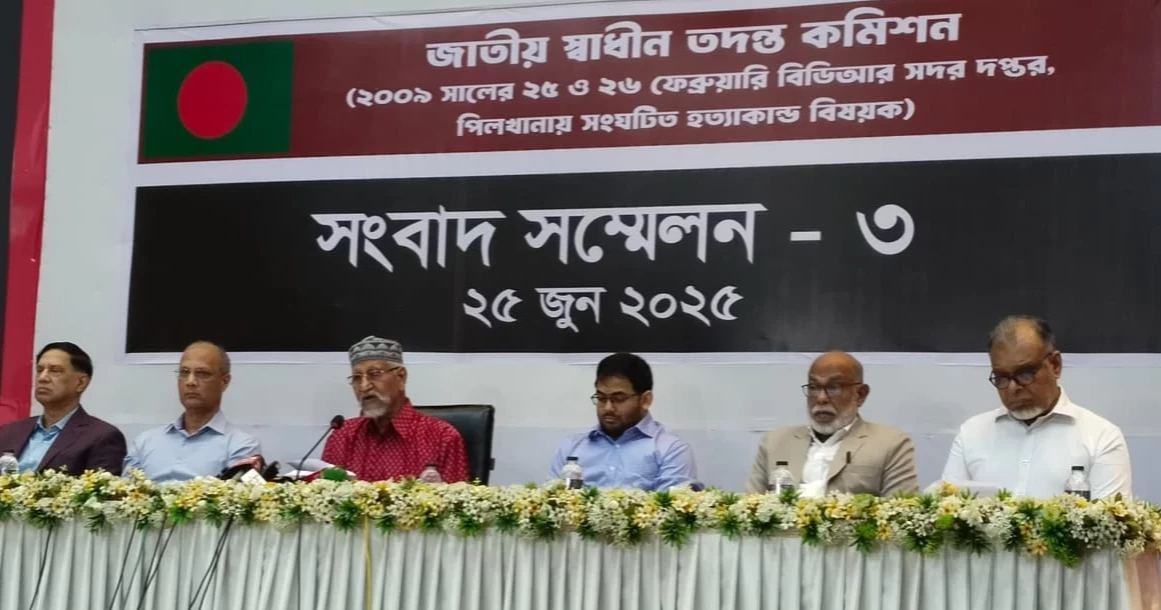The chairman of Bangladesh’s National Independent Investigation Commission has revealed damning evidence of systemic intelligence failures during the 2009 Bangladesh Rifles (BDR) (currently Border Guard Bangladesh) mutiny, while alleging a deliberate cover-up in previous investigations.
Retired Major General ALM Fazlur Rahman presented these findings during a Wednesday press conference at the commission’s newly established office in Dhaka’s Science Laboratory area.
Fazlur Rahman stated the commission’s investigation has conclusively demonstrated how intelligence agencies possessed advance warning but failed to act prior to the February 25-26, 2009 uprising.
“The complete paralysis of military and law enforcement response created conditions for unprecedented violence,” he noted, adding that timely military intervention could have prevented the massacre that claimed 74 lives, including 57 army officers.
With 158 military, civil and political figures already interviewed and 50 more testimonies pending, the commission has prepared a draft report currently under internal review. Fazlur Rahman disclosed they are pursuing additional evidence through international channels, necessitating an extension of the submission deadline to September 30.
The chairman delivered particularly sharp criticism of two earlier investigation bodies, accusing them of deliberately mischaracterising the mutiny. “These commissions attempted to divert attention from the real conspiracy by falsely linking events to terrorism,” he asserted.
While declining to provide specifics, Fazlur Rahman confirmed the commission is examining witness accounts suggesting foreign involvement in the mutiny. “We’re rigorously verifying these sensitive claims,” he cautioned.
The 2009 BDR mutiny remains one of Bangladesh’s most traumatic security failures, resulting in historic convictions – 139 death sentences, 185 life imprisonments, and 228 additional jail terms under anti-terrorism statutes.


